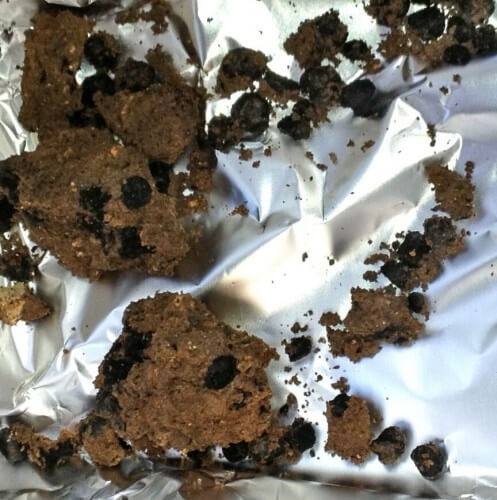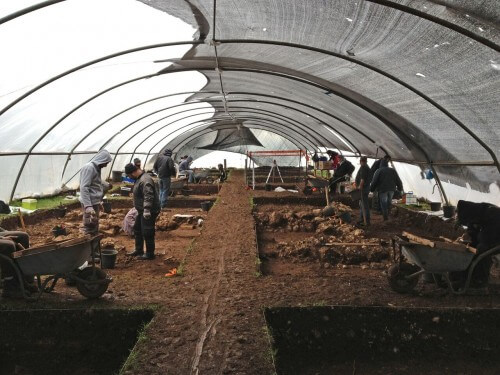Researchers from the Weizmann Institute and the Antiquities Authority revealed that domesticated pea seeds discovered at Neolithic sites in the Galilee are a little more than ten thousand years old

A joint study by researchers of the Weizmann Institute and the Antiquities Authority, which examined pea seeds uncovered in recent years in archaeological excavations at sites from the Neolithic period in the Galilee, sheds light on the dietary habits of the people who lived in the area 10,000 years ago. Seeds found in the prehistoric sites indicate that the diet of the people then consisted mainly of pulses, as well as lentils, different types of peas and chickpeas.
The research was conducted by the archaeobotanist Valentina Karakota from the Weizmann Institute, together with Dr. Elisabetta Boerto and Dr. Lior Regev, and in collaboration with the archaeologists Dr. Kobi Vardi, Dr. Yitzhak Paz, Dr. Hamudi Halaila, Dr. Yanir Milevski and Dr. R. Omri Barzilai from the Antiquities Authority.

The abundance of pea seeds in the Neolithic sites excavated in the Galilee during the last years indicates a focus on the cultivation of pea. Dating of the seeds carried out at the Kimmel Center at the Weizmann Institute, testified to a date range ranging from 10,160-9,890 years before our time. These seeds, which were found in the excavations in good condition, were kept in storage pits (silos) after being separated from their shells. The measurements of the seeds show uniformity in their size - a figure that teaches about organized agricultural cultivation, in which the legumes that reached maturity in the same period of time were harvested. According to the researchers, keeping the seeds in the storage pits also shows the planning of agriculture over time, when the saved seeds were not only intended for food, but also to guarantee future crops for years to come.
According to the researchers, "Identifying the first places where the plant species were domesticated, which today form an integral part of our diet, is of enormous importance for research. Despite the importance of grains for nutrition to this day, it turns out that in the area we examined - west of the Jordan River, the legumes, which are rich in flavor and protein, were first domesticated. A phenomenon known as the agricultural revolution took place throughout the region: throughout the Levant, various varieties of animals and plants were domesticated, and it is now clear that today's Galilee region was the main producer of legumes in the prehistoric period. This is a process that lasted thousands of years, during which certain properties of the wild species changed, and domesticated plant species were created. To this day, the main chickpea cultivation in Israel is done in the Galilee region."
According to the archaeologists, the precise dating of the bean seeds using advanced methods, led to the conclusion that they found the oldest domesticated bean seeds in the world, dating from 10,125-10,200 years before our time.

3 תגובות
Do you have a reference to the scientific article itself?
Yossi, tell the heads of all the international organizations that fight hunger all over the world that prey (ie: meat) is more available than plant food. I promise you they won't stop laughing. Plant protein is the cheapest, most available and healthiest that nature has to offer.
Nutritionally, it is not certain that there is an advantage to meat over the protein from legumes and animal milk.
In terms of food availability - prey is more available, especially if it is kept in a closed place.